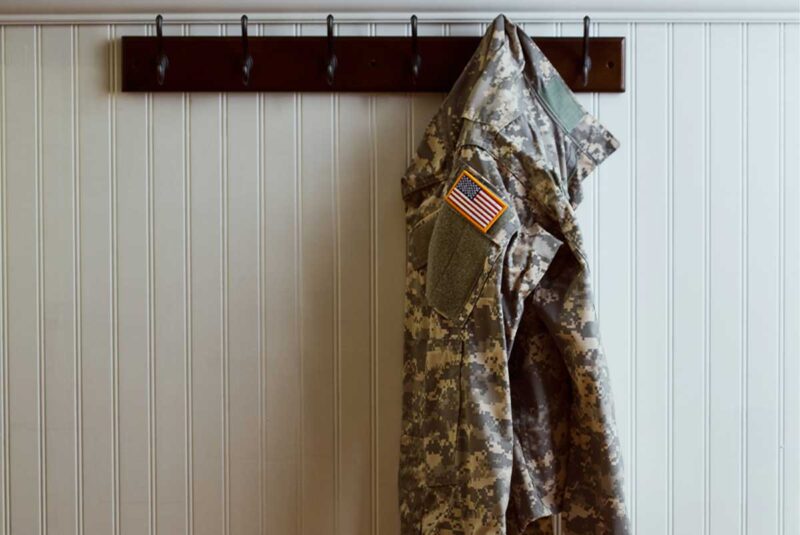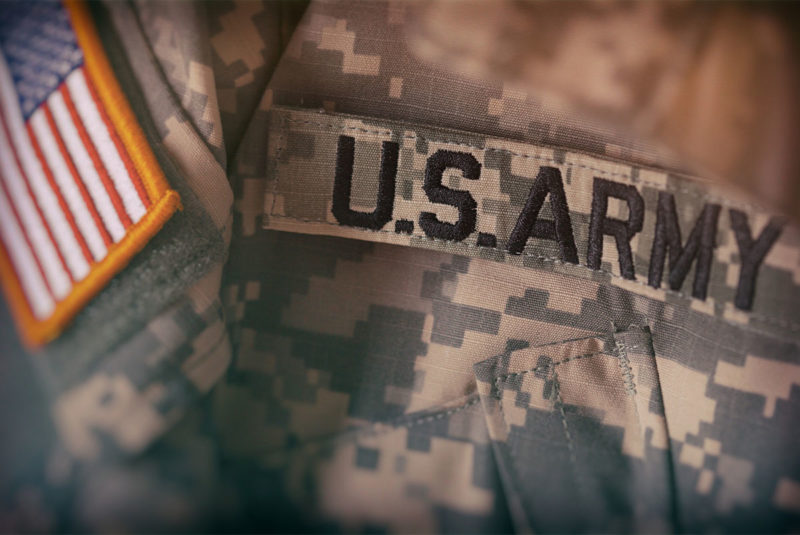Ready To Buy a Home?
Get Approved to Buy a Home
Rocket Mortgage® lets you get to house hunting sooner.
A VA home loan is a specific type of mortgage extended only to military members, veterans and qualifying surviving spouses. These loans offer more favorable qualifying terms, including lower credit scores and less money down – even no money down in some cases!
Whether you’re doing research for yourself or a family member, let’s look into the details of how a VA home loan works, including qualification requirements, pros and cons.
What Is a VA Loan?
Explore Your Mortgage Options
What are you looking to do?
As opposed to a conventional loan, a VA mortgage is a government-backed loan program sponsored by the U.S. Department of Veterans Affairs (VA). The VA guarantees these loans, so there’s almost no risk to the lender. It’s important to understand that the VA doesn’t actually issue the loans, but it does determine who qualifies for them.
If you, or a surviving spouse, meet the minimum service requirements as an active-duty service member, veteran or member of the National Guard, you qualify for a VA loan. You can find all the minimum service requirements at VA.gov.
VA home loans are labeled as non-conforming loans since they don’t meet the standard guidelines of conventional lending requirements set by mortgage giants Fannie Mae and Freddie Mac. Instead, these loans provide excellent flexibility for active and former military service members interested in buying a home. With more lenient borrowing requirements, better interest rates and little to no down payment, VA loans provide immense benefits to military families. In contrast to other low down payment mortgages, VA loans don’t have monthly mortgage insurance to worry about.
Types of VA loans
Similar to conventional loans, the VA has a wide range of home and refinance options for qualified borrowers, including:
- VA purchase loans: Lenders offer competitive interest rates on standard VA loans. These mortgages include fixed-rate, adjustable rate mortgage (ARM) and jumbo loans.
- Native American Direct Loan (NADL) program: If you’re a Native American Veteran or a veteran married to a Native American, you may be eligible for this loan that allows you to buy, build or improve a home on federal trust land.[1]
- Interest Rate Reduction Refinance Loan (IRRRL): If you have an existing VA loan and want to explore lowering your payments, an IRRRL – also known as a VA streamline refinance – may be able to help.
- Cash-out refinance loan: If you want to tap into home equity to renovate your property, pay off debt or take care of other financial needs, you may be able to qualify for a cash-out refinance through a special VA loan.
- VA construction loans: While not all lenders offer this type of loan, a VA construction loan helps you cover the cost of construction of a new home. Payments are released as portions of the home are completed.
Not exactly sure which type of loan you need? A loan officer can help you go over all the available options.
Need Mortgage Help?
New home, second home, refinancing, we’ve seen it all. Whatever your goals, expert help is just a click away.
How Does a VA Loan Work?
The U.S. Department of Veterans Affairs doesn’t issue VA loans, but it determines who qualifies and what lenders can issue them. They work similarly to conventional loans with some key differences.
For example, the VA backs the mortgage loan, but the lender finances it. VA loans technically don’t have borrowing limits for eligible veterans, but lenders often use conventional loan limits to determine if a borrower needs to apply for a jumbo loan. For reference, the 2022 loan limit amount for a conventional loan is $647,200.[2]
Additionally, the VA generally doesn’t require buyers to get a home inspection, but it’s still highly recommended by lenders to avoid any unanticipated issues.
VA Loan Eligibility
When applying for a mortgage backed by the VA, you’ll need to provide a certificate of eligibility (COE) to your lender to prove you qualify for the loan. You’ll simply need to show proof of service, which can be verified by obtaining an online COE or completing VA Form 26-1880 and submitting it to a nearby VA processing center.
Your lender may be able to pull your proof of service directly from the government’s automated database. Typically, you’ll only need to provide your social security number and date of birth.
VA Loan Requirements
Fortunately, VA loan qualifications are more relaxed than other types of mortgages. During the application, your lender will investigate your eligibility requirements by reviewing your:
Credit score
Since the VA itself doesn’t have a specific requirement for minimum credit score, credit requirements will vary by lender. Depending on how high or low your credit score is, your down payment requirement may be impacted.
Residence type
Depending on the type of property you’re planning to purchase, you may or may not qualify for a specific VA loan program. For example, certain lenders may not allow you to buy a manufactured home. Additionally, VA loans can’t be used for a vacation or investment property, but for a primary residence only.
To comply with VA loan occupancy requirements, you must occupy the property as your primary residence within 60 days of purchase.[3]
Debt-to-income (DTI) ratio
Your debt-to-income (DTI) ratio shows how much of your monthly income goes toward debt and recurring monthly payments. Although the VA doesn’t have specific requirements regarding DTI, many lenders do. A higher DTI can signify to your lender that you don’t have enough money available to comfortably pay the mortgage each month.
Down payment
Fortunately, VA loans are among the few options that don’t require a down payment. However, your lender may have credit score or DTI requirements to qualify for a zero-down-payment mortgage loan. You should be prepared to pay some closing costs and other fees, even if you don’t have to pay anything down.
VA funding fee
A funding fee is required for most VA loans and helps cover the cost to taxpayers. These fees will vary depending on the price of your home and what your down payment is. You can expect to pay 1.4% – 3.6%[4] of the amount of the total loan for traditional VA-backed purchase loans and construction loans.
What Are Some VA Loan Benefits and Disadvantages?
VA loans have their own unique set of benefits, as well as disadvantages. It’s important to consider your financial situation before making a decision during the home buying process.
Pros of a VA loan
VA loans have plenty of upsides. These may include:
- No private mortgage insurance (PMI): With a conventional mortgage, unless you put down 20%, you’ll need to pay private mortgage insurance (PMI) until you have enough equity in your home to refinance. PMI protects the lender in case the homeowner defaults on the loan and the home goes into foreclosure.
- No down payment requirements: As long as you have a decent credit score and DTI ratio, you’ll likely be able to avoid a down payment. This means you’ll only need to come up with the funding fee,which is much less expensive than a down payment.
- Low interest rates and closing costs: Since these loans are backed by the government, there’s less of a risk for lenders. VA loans generally carry lower interest rates than conventional loans – even for borrowers who may have credit issues.
In addition to standard VA loan benefits, disabled veterans have access to additional benefits, including exemption from funding fees and access to Specially Adapted Housing (SAH) grants.
Cons of a VA loan
In contrast to all the upsides, there are also some cons to VA loans:
- Property limitations: A VA loan can’t be used for an investment property or vacation home. If you’re looking to purchase a second home, you’ll need to go another route.
- Funding fee: While conventional loans don’t have funding fees, they often have more expensive closing costs and hefty down payment requirements. Though you’ll need to pay a funding fee, you can still avoid other costs associated with conventional mortgages.
- Seller concerns: Seller-paid concessions are common with VA loans because active duty or veteran borrowers may have less money available to put down. Sellers may be reluctant to accept a VA loan offer if they don’t want to pay any closing costs.
How To Apply for a VA Loan
Fortunately, applying for a VA loan is similar to applying for other mortgages. You’ll go through standard steps when buying a home:
- Acquiring your COE: First, you’ll want to get your COE to provide proof of your military service.
- Getting preapproved: Next, you’ll work with your lender to get preapproved early in the loan process to determine how much house you can afford.
- Shopping for a new house: Once you’re preapproved, you can go home shopping with a real estate agent who understands how VA loans work.
- Making an offer: When you find a home that’s within your budget, you can put in an offer on that home.
- Applying for your VA loan: If your offer is accepted, the loan will go to underwriting, and an appraisal will be performed to ensure the home is worth what you’re buying it for.
- Closing on your home: It’s closing time! Once all the closing documents are finalized and signed, you’ll get the keys to your new home.
Is a VA Loan Right for You?
If you’re an eligible military service member or veteran and want to avoid the high costs of conventional loans, a VA loan may be the best route for you. If you’re ready, you can speak to your real estate agent and start the VA mortgage preapproval process.
The Short Version
- A VA home loan is a specific type of mortgage extended only to military members, veterans and qualifying surviving spouses
- The VA guarantees these loans, so there’s almost no risk to the lender
- With more lenient borrowing requirements, better interest rates and little to no down payment, VA loans provide immense benefits to military families
U.S. Department of Veterans Affairs. “Eligibility Requirements for VA Home Loan Programs.” retrieved November 2022 from https://www.va.gov/housing-assistance/home-loans/eligibility/
Fannie Mae. “Loan Limits.” retrieved November 2022 from https://singlefamily.fanniemae.com/originating-underwriting/loan-limits
U.S. Department of Veterans Affairs. “Chapter 3: The VA Loan and Guaranty.” Retrieved November 2022 from https://benefits.va.gov/WARMS/docs/admin26/m26-07/Chapter_3_The_VA_Loan_and_Guaranty.pdf
U.S. Department of Veterans Affairs. “VA funding fee and loan closing costs.” Retrieved November 2022 from https://www.va.gov/housing-assistance/home-loans/funding-fee-and-closing-costs/




